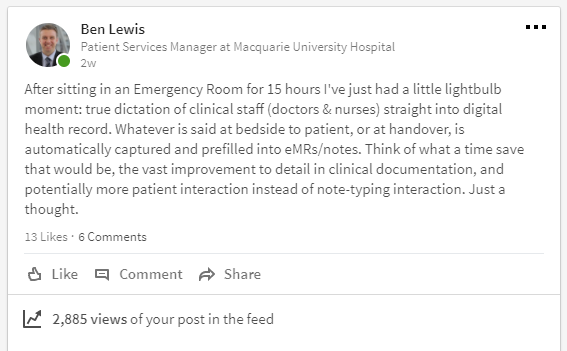Today is national R U OK? Day (12th Sept), an Australian suicide prevention charity that aims to start life-changing conversations.
I’m a supporter of this cause, because I always want to help people, and I want to do my utmost to ensure that those I know, love, and care for know that I am always here for them.
Caring conversations.
At the heart of RUOK? is the idea that three simple words can have a profound impact. Sometimes, just the act of actually caring and actually listening is enough to help someone.
I’m not the guru on how to do these conversations, but R U OK? site - How to Ask has some great resources if you are interested. They also have a resources page for more detailed information.
Look and listen
One of the things about RUOK? is that you should take a moment to consider if what you see and hear add up. If you feel that someone is struggling, or there is something bothering them - be brave and ask. One time someone I worked with was busy, rushing around, and as we passed each other going down the hall a brief glance and nod of acknowledgement didn’t sit right with me. Something about the nod, something that was in his eyes… said something more was at play. So I stopped, turned, and asked if he was ok - but really meant it. He was a little taken aback, that I had stopped my day to speak to him, but he sighed and said that there were some family things happening that were upsetting him. I asked if he wanted to chat to me about it - in a sincere and polite way. He smiled and thanked me, but said that if needed to he would.
It’s ok not to be ok.
I think one of the complexities surrounding this is the inherent nature of people to hide / shy away from sharing when they are struggling. In this day and age of social media, we are constantly being bombarded and pressured to only display the superficial “best things”.
One thing to keep in mind is that it is actually ok to not be ok. Life can get messy, bad things happen, stress / pressure / responsiblities can see overwhelming. Sometimes just having a friend or someone you can honestly say “I’m not doing ok" can be a good first step. Don’t feel guilty to speak up, or ashamed that you are struggling.
If you’ve gotten this far - and you need someone to talk to Lifeline = 13 11 14
Alternatively, if you ever need to chat - you can reach me via twitter @benjamin_lewis
(*Note: I’m not a doctor, nor mental healthcare professional, but I am happy to listen).



